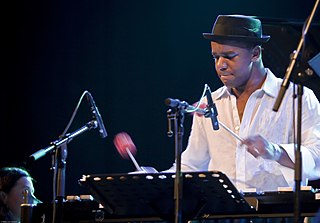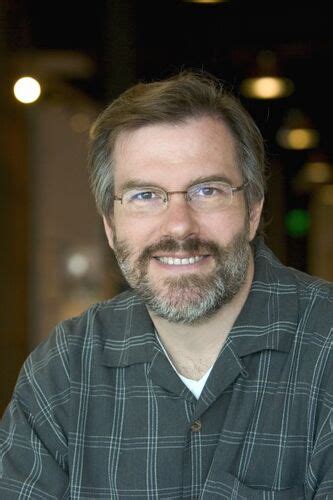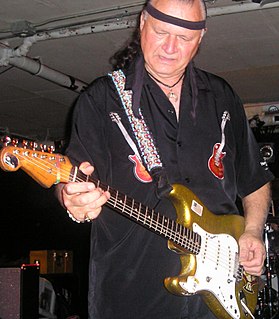A Quote by Stefon Harris
Ultimately, what we do as musicians, I think of us as a type of emotional engineer. We essential take these sound waves, this sound, and we organize it into emotion, and that's how we connect with our audiences.
Related Quotes
I think our particular sound has come by just not adhering to any specific sound. For us, it's about the song, and being able to fit in to what is appropriate. When we sit down, we're not talking about what type of band we're gonna be within a specific genre - there's a uniqueness to all of us individually that throws putting anything in a box out the window.
When we sit in meditation and hear a sound, we think, 'Oh, that sound's bothering me.' If we see it like this, we suffer. But if we investigate a little deeper, we see that the sound is simply sound. If we understand like this, then there's nothing more to it. We leave it be. The sound is just sound, why should you go and grab it? You see that actually it was you who went out and disturbed the sound.
The harmony that holds the stars on their courses and the flesh on our bones resonates through all creation. Every sound contains its echo. Before there was humankind, or even forest, there was sound. Sound spread from the source in great circles like those formed when a stone is dropped in a pool. We follow waves of sound from life to life. A dying man’s ears will hear long after his eyes are blind. He hears the sound that leads him to his next life as the Source of All being plucks the harp of creation.
Just the way sound creates visible waves as it travels through a droplet of water, our "belief waves" ripple through the quantum fabric of the universe to become our bodies and the healing, abundance, and peace-or disease, lack, and suffering-that we experience in life. And just the way we can tune a sound to change its patterns, we can tune our beliefs to preserve or destroy all that we cherish, including life itself.
Think of the sound you make when you let go after holding your breath for a very, very long time. Think of the gladdest sound you know: the sound of dawn on the first day of spring break, the sound of a bottle of Coke opening, the sound of a crowd cheering in your ears because you're coming down to the last part of a race--and you're ahead. Think of the sound of water over stones in a cold stream, and the sound of wind through green trees on a late May afternoon in Central Park. Think of the sound of a bus coming into the station carrying someone you love. Then put all those together.
What I've learned how to do as I've gotten older is to take all of the information that I have, and push it aside, and try to distill each song into an emotional theme. The hardest thing that I've ever had to learn how to do in playing music is use the sound of my instrument to create an emotional effect.
A sentence is like a tune. A memorable sentence gives its emotion a melodic shape. You want to hear it again, say it—in a way, to hum it to yourself. You desire, if only in the sound studio of your imagination, to repeat the physical experience of that sentence. That craving, emotional and intellectual but beginning in the body with a certain gesture of sound, is near the heart of poetry.



































